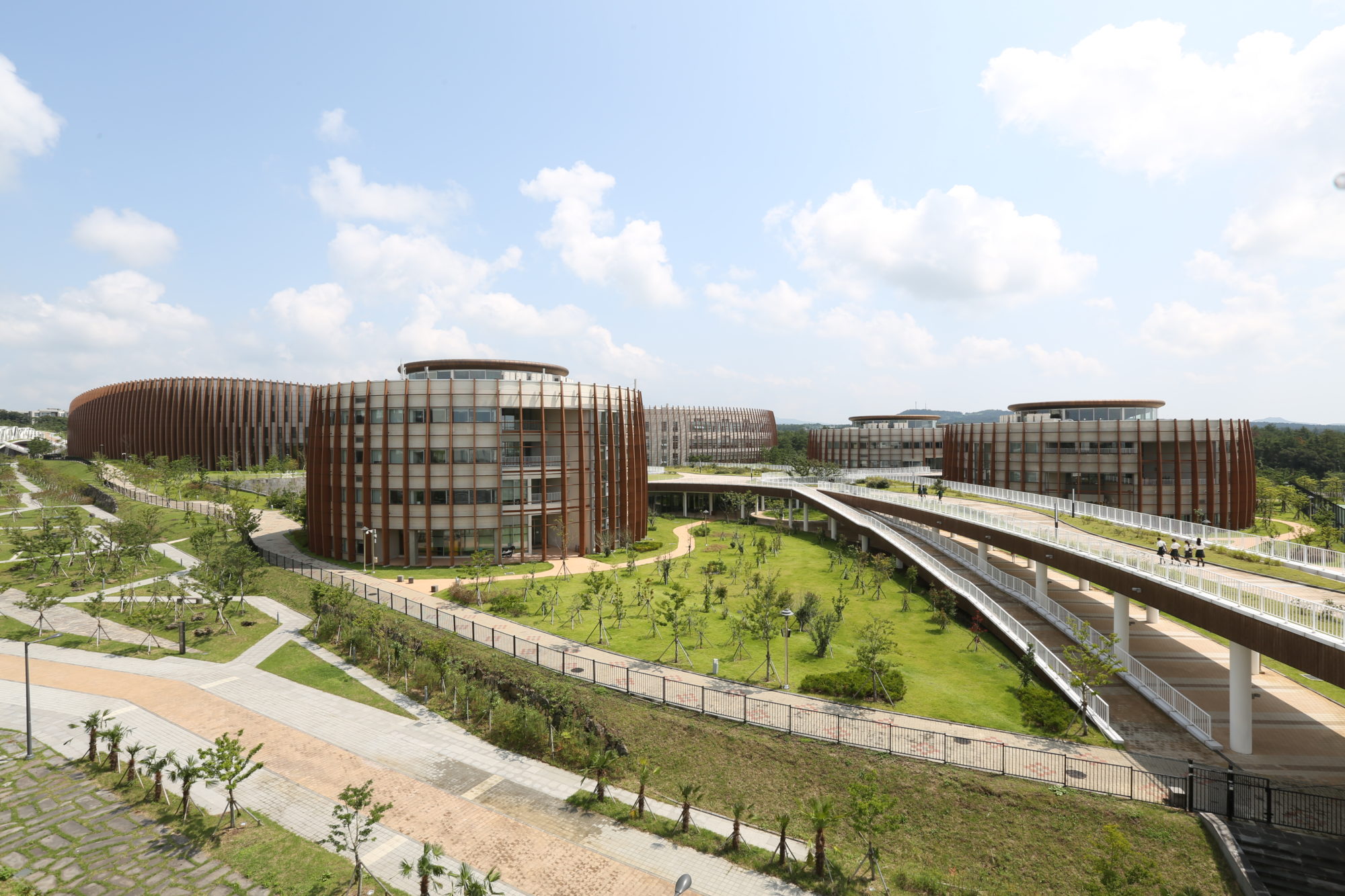To win the globally contested International School of the Year Award is such an incredible achievement for Branksome Hall Asia, a school that only opened its doors in October 2012. Dr Cinde Lock, Principal, was ebullient in her praise of the local community and proclaimed, “This achievement is a recognition for all of the stakeholders in our school. Our parents, students, Korean partners, and, of course, our staff have all contributed to this success. Thank you ISC Research for this award. It means the world to us.”
After winning the award for the initiative to support students as future thinking innovators at last year’s event, Branksome Hall Asia was shortlisted for the community initiative and the strategic leadership initiative at this year’s awards. Before exploring these in more depth, it is worth explaining the school’s educational philosophy because it is this that provides the genesis for the award-winning programmes.
Our educational philosophy
Branksome Hall Asia uses the acronym SPICE to outline its unique approach to education and its commitment to ensure the success and wellbeing of each student. S stands for Shaping a Better World, P for Pathways of Opportunity, I for Innovation, C for Culture of Care and E for Empowerment. It is from SPICE that the school’s culture has evolved and the signature programmes developed.
If you consider the S, I and E from SPICE, you can understand why the community initiative was awarded to Branksome Hall Asia. One of our students, Seung-eun Shin, along with several other IB Diploma students, formed an organisation, Paradigm, with a clear vision to solve social problems through the use of technology innovation and make the world a better place. Having experienced an extensive design technology and computer science curriculum, these girls wanted to apply their knowledge in a positive way.
A winning community initiative
In collaboration with the NGO Life World (or Life Nuri), Paradigm proposed a disaster research project for the victims of the Nepal earthquake. Two years after the earthquake in Nepal, when interest from the international community had cooled, the country continued to experience severe poverty and numerous issues. A detailed survey was conducted to investigate the problems facing people living in rural Nepal. It was discovered that many Nepalese young women and children were being sexually assaulted in the night. So, Paradigm’s members set about brainstorming ideas to see if they could help address this problem directly.
The students designed and produced an RF (radio frequency) security necklace for these vulnerable young women. Their necklace design incorporated a flashlight, alarm and an RFID (radio frequency identification) chip for tracking, and used solar energy to power it. To fund this project, Paradigm won a national competition hosted by KEDCO (Korea’s economic development corporation). They had to present their idea to a panel of judges and convince them that they could create and build this product. The design went through multiple iterations, and engineering contractors made the actual necklaces. Once 100 necklaces had been manufactured, the members of Paradigm flew to Nepal to educate Nepalese children and present the necklaces to the community.
The effects of Paradigm’s visit to the remote Nepalese town was immense for the entire Branksome Hall Asia community. Through video footage and presentations, the members of Paradigm came to understand their level of privilege and developed a deep moral responsibility to help those in need. As one member of Paradigm stated, “I will never complain again because I don’t have the latest iPhone. It really doesn’t matter”.
While the original Paradigm members have subsequently graduated from Branksome Hall Asia, they have inspired the next generation. Paradigm is still going strong and is working with global charities to improve the quality of life for others. The outbreak of COVID-19 has created many challenges and its collaboration with the World Volunteer Organisation to help build sustainable homes in Laos has been put on hold. In the meantime, members of Paradigm have been working to provide their local community with sustainable micro-controlled greenhouses.
Strategic leadership recognition
The challenges created by COVID-19 relate directly to the second shortlisted category, the strategic leadership initiative. The senior team’s initiative was to strategically plan for a meaningful online learning programme, as opposed to a crisis-response learning programme. A six-stage approach was created to build a programme that focused on the school’s changing needs during the pandemic. This framework has been published in the current edition of the International Schools Journal.
Given the dearth of information on online learning in international schools, it was necessary to adapt and extrapolate from the available post-18 research. The intention was to anticipate all potential barriers to learning and ensure that the school would remain true to its educational philosophy and mission. Quite simply, the goal was to continue to deliver an education of exceptional quality, irrespective of the learning environment.
With such a clear vision in place, the entire community was supportive. Teachers were asked to deliver their online lessons from their classrooms. Technical and pedagogical support was made available for teachers and collegiate collaboration was encouraged. Moreover, delivering lessons in ergonomically designed workspaces offered fewer distractions.
The school timetable was adjusted and was different for junior, middle and senior school. The timetable included advisory classes each morning to offer additional social-emotional support. A blended learning approach that combined synchronous and asynchronous learning was created to help students move and interact more with their learning environment.
In an effort to reduce screen time and deliver an enquiry-based learning model, equipment and materials were mailed to students, such as art supplies and Arduino kits. Where possible, online simulation applications and virtual reality environments were utilised. This allowed students to explore and enquire in meaningful ways from their homes. Breakout rooms were used for small group discussions to develop communication and social skills. Teachers could then jump from room to room and guide the students in their virtual spaces.
The next stage of the initiative was to refine and improve the online learning programme through parent, student and teacher surveys. Thus, positive adjustments, based on empirical data, were made and best practices were shared.
Building a culture of learning and support
With the success of these initiatives in mind, the leaders of Branksome Hall Asia have the following recommendations:
- Decide how you will enact your school’s vision and mission. If everyone in your community values your purpose then you will create a culture of collaboration and support. If your school values supporting others then the magic will happen.
- Create volunteer focus groups to enact positive change that supports your vision. Areas to explore could include emerging technologies, empowering students, design sustainability, enacting the school’s mission and critical thinking. This approach helps build staff ownership, provides empowerment and gives everyone time to reflect.
- Create partnerships and collaborations with other schools and organisations. Projects are embraced more readily when this form of positive accountability is included. This widens staff perspective and adds quality to projects.
- Build a culture of care and wellness for your community. If you do not look after your own physical and mental health then you are likely to make poor decisions. Moreover, a community that cares for each other is a great environment to promote creativity.
When you build a culture of learning and support, good things happen. For the Branksome Hall Asia community, it is being recognised as the International School of the Year 2021. More importantly, projects that help those less fortunate get developed and the world becomes a slightly better place.
 Dr Terry McAdams is Director of Technology, Research and Innovation at Branksome Hall Asia. Connect with Terry on LinkedIn.
Dr Terry McAdams is Director of Technology, Research and Innovation at Branksome Hall Asia. Connect with Terry on LinkedIn.
Subscribe to ISL Magazine for more!


